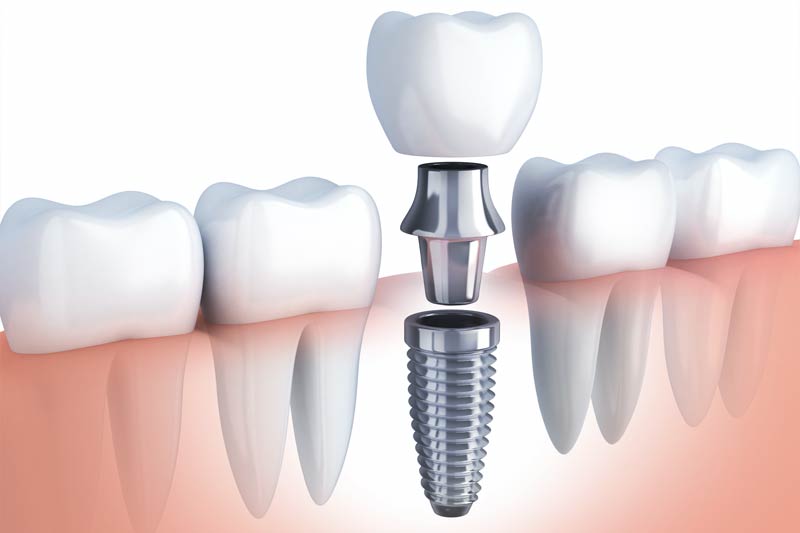
Dental Implant Dentist Near Me, Brandywine MD
Dental implants are arguably the best solution for missing teeth. When you have a severely damaged or decayed tooth that cannot be saved with a crown or root canal therapy, then your dentist may recommend that it be completely removed.
Unfortunately, any spaces left unfilled between your teeth cause adjacent teeth to shift towards the gap, causing bite misalignment and other problems. In addition, without the tooth root to stimulate the underlying bone tissue, the jawbone may begin to lose mass and strength (bone atrophy), which makes your face shrink and look older. If your dentist recommends tooth extraction, he/she will also suggest an appropriate tooth replacement option to prevent this from happening.
What to Expect
A dental implant is surgically placed in the jawbone and allowed to fuse with your natural bone, creating a firm foundation for the replacement tooth. Singular implants can be used to replace one missing tooth or to support bridgework for 2 or 3 missing teeth. Multiple implants can also be placed at appropriate intervals to support dentures and keep them from slipping when eating and talking.
Dental implants are the only restorative option that stops bone atrophy after tooth loss. A dental implant comprises three parts:
- Titanium post – that is surgically placed into the jawbone
- Abutment – used to attach the post to the crown
- Crown – section of the tooth above the gum line that is connected to the post via the abutment
Who is the Right Candidate for Dental Implants?
Although the success rate of dental implants is high, at over 96%, the right candidate should:
- Have good overall health with no signs of gum disease, tooth decay, or jawbone degeneration
- Have sufficient jawbone tissue to support the posts
- Have no conditions that put you at risk of surgical procedures, like over bleeding
If you don’t have enough bone tissue to support an implant, the dentist may recommend a bone regeneration procedure to build up the base for the implant. This will, however, increase the duration of your dental implant treatment from the usual 4-6 months.
It is important that you discuss with your dentist about your candidacy for dental implants.



